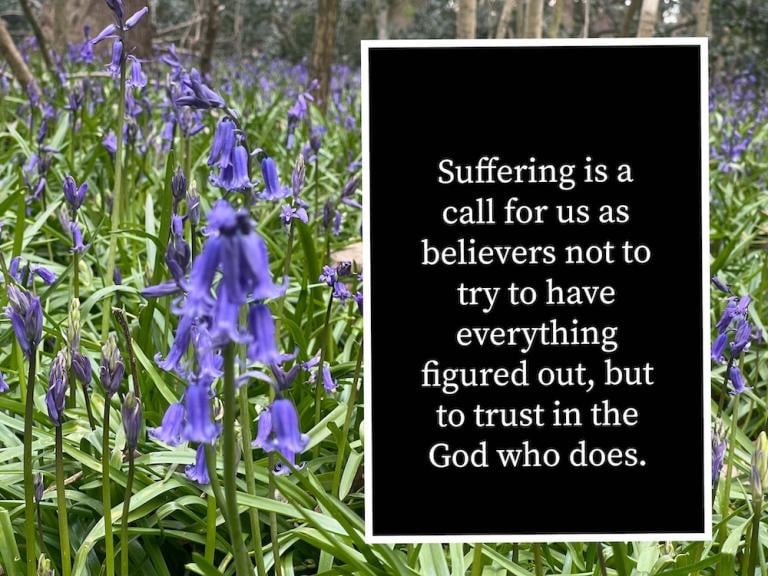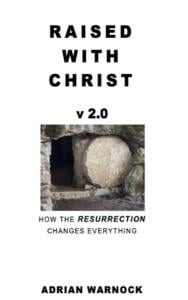Forming Family Habits That Disciple: Habits of the Household
In the same way that rails dictate where a train goes, our habits become grooves that often unconsciously dictate what we do and where we go. All of us have habits. Not all of our habits are good. Not all of them are patterns in our lives that we are conscious of, but each of us runs on a default rail system that shapes us daily. It may even be that our routines and habits become the biggest influence on our lives—and depending on what our habits are, that autopilot influence can be extremely positive or detrimental.
Recently, while reading
Habits of the Household by
Justin Whitney Earley, I realized more clearly how important good habits are not only for our individual lives, but also for our families. I don’t just want to lead a quiet life for myself, one that minds it’s own buisness and works with my hands, but I want to invite my family into that same prophetic and evangelistic way of life (
1 Thessalonians 4:11-12).
Unhealthy Patterns and the Need for Intentionality
In
Habits of the Household, author
Justin Whitney Earley points out that the world around us helps to shape those detrimental, unconscious, and unhealthy patterns in our lives. He remarks, “Whether it’s our divided attention, the chaotic pace of any given day, or the challenges of technology, the longer we live in unhealthy patterns, the more normal they can seem.” Undoubtedly, these things become more than bad habits; they disciple us in some way: “Discipling happens in the context of the habits we form and the rhythms we keep.” If we can inadvertently be discipled in the image of something that is malicious in nature, then we must be intentional with the habits we form and the rhythms we keep that are discipling us.
Habits as Spiritual Disciplines and Liturgies
Though good habits and rhythms alone don’t bring transformation in any area of our lives—because transformation is an external, God-driven reality—they can help to keep our hearts soft, our lives surrendered, our feet hard, and rightly prioritize what is influencing our lives. There should be great intentionality to our habits, seeing them as spiritual disciplines that keep us aligned with the character and calling of God. Good habits are like liturgies. Liturgies in Christian worship are the practices and disciplines of public worship—habits—that help to form our communal worship.
Though most liturgies are a communal response and participation in praise, gratitude, remembrance, intercession, or confession—they also can be practiced as individual rules of life, or habits. Earley suggests that “A liturgy, in the formal sense, is a pattern of worship we repeat over and over, hoping that the pattern draws us into worship and forms us in the image of the one we worship.” Good habits repeat a pattern in our lives that draw us into more intentional worship and greater awareness of the one we worship.
Parenting and Household Liturgies
As parents, all of our habits are forms of liturgy to our families. The question Earley raises is a good one: what do our habits or liturgies say to our families? In his own reflections, he admits that often his liturgies are “probably liturgies of efficiency, impatience, rush, or frustration.” Reflecting on this confession—which could be true of many of us—Earley remarks that these aren’t the liturgies he would have chosen if he had a choice, but unfortunately, they had become the ones they did have—“and they needed to change.” This book emerges out of that realization and offers a very practical framework to develop a rule of life—intentional habits and liturgies—for families that feel lost in the chaos of technology and busyness, aware that they need more intentionality in their lives leading them to greater surrender and spiritual formation.
Overview of the Book and Its Structure
Released by
Zondervan in 2021,
Habits of the Household was written to help parents practice the story of God in everyday family rhythms. The book is divided into three parts: an introduction, family rhythms (Habits of the Household), and an epilogue. Part 2, the Habits of the Household, features ten chapters offering new habits for the normal, everyday moments of life. These practices help to revolutionize the ordinary, autopilot moments into radical encounters with God and spiritual formation.
Those ten chapters cover our waking moments, mealtimes, discipline, screen time, family devotions, marriages, work, playtime, conversation, and bedtime. Each chapter features story, scriptural input, better ways to reverse default mode in our lives, and overarching vision and goals for these ordinary moments. The end of each chapter recaps the input, offers further resources, and gives a few practical notes for discussion or wrestling further. As with most books, I am less moved by personal story and would rather wrestle with the implications presented. That being said, the stories are appropriate in length, always well-fitting to the topic at hand, and often even easy to identify with as a parent.
About the Author
Based out of Richmond, Virginia,
Justin Whitney Earley is a rising, notable author. He has written several books that have gained attention over the past five years. In 2019, he wrote about having a rule of life. In 2021, he released Habits of the Household. In 2023, he released
Made for People, and then in 2024, he released a video and workbook for the
Habits of the Household resource. In 2025, he released a kids’ book on siblings learning to get along. When he is not writing, he is practicing law and speaking in various contexts. Graduating from the University of Virginia and then going on to do missionary work in Shanghai, China, Justin returned to get a law degree from the Georgetown University Law Center. As a dad of four sons, he has a lot to offer on what intentional spiritual formation looks like in parenting.
Recovering the Rule of Life
Throughout church history, followers of Jesus have upheld the importance of developing intentionality in their habits through what is called a rule of life. This book highlights simply that, “A rule of life is a pattern of shared habits intended to shape a community in the love of God.” Many things have influenced this idea—from monastic living (like with St. Augustine and St. Benedict) to rhythms of Judaism. Also, as pointed out by Earley, “The concept of a rule of life gains some of its roots from the story of Daniel and the way he and his fellow servants insisted that while they would serve in Babylon’s courts, they would follow a different pattern of living.
Their commitment to specific habits of eating, drinking, and praying (their rule of life) is what allowed them to be ‘in the world, but not of it.’” Having a rule of life is a really good way to develop habits that are beneficial to our spiritual formation. This same idea shows up in the early church in Acts, where “Early believers’ conversions led them to adopt habits radically different from the world around them. The distinctiveness of their habits set them apart, called them to the commitments of their faith, and attracted many others to join them.” A rule of life keeps us radically differentiated from the chaotic and busy world around us.
Households as Schools of Love
Maintaining that not only individuals but families need a rule of life, Earley says this will help us to better commit to communal habits that develop our households as “little ‘schools of love,’ places where we have one vocation, one calling: to form all who live here into lovers of God and neighbor.” Additionally, by living into a holistic rule of life for our community, it will keep us from “falling back on rhythms that are forming us in all of the usual patterns of unceasing screentime, unending busyness, unrivaled consumerism, unrelenting loneliness, unmitigated addictions, and unparalleled distraction.” Habits, strung together in a rule of life, become a rail that runs our family in a deeper way with the Spirit of God.
This starts with our waking, because “The best way to understand the spiritual disciplines as morning routines of the household is to imagine them as ways to let the light in.” And it ends with how we tuck our kids into bed, realizing that “Bedtime is a moment, for parent and child, to acknowledge that at the end of the day, God loves us. No matter our failures, we can rest in grace. Bedtime liturgies use habitual prayers to find words (and actions) that incorporate the truths of the gospel into our routines – especially at the moments of the day when we are tired and the most likely to need them.”
Why I Read This Book
There were several reasons I read this book. First, because as someone who practices a rule of life for greater spiritual formation individually, I wanted to also be better at it in the life of my family. Secondly, I read this because I teach a course in my full-time work at
Water Street Mission on the importance of rules of life, and I wanted to read up on some more holistic ideas on a rule of life in all areas of our lives. Lastly, I read it because we are preparing for a Sunday morning series at
River Corner Church called How is Your Soul? that talks about having a rule of life and how this helps us develop greater spiritual formation through habits and rhythms in our lives.
This book had a lot of good resourcing for all three of these reasons. I have already grafted some of the ideas—especially at mealtimes—into our practices. I am still wrestling with his prophetic challenge on what it means to remember to practice play. The highlights I took away from this book will also be super helpful to those who are struggling to hold good habits in their messy and chaotic family lives. I also know I will be using this as a recommended additional resource for our series at River Corner Church.
Encouragement and Conviction for Parents
This book will both encourage and challenge parents. I love the author’s remarks that, “In a very real sense, parenting is one long process of revealing who you are. And usually that is not pretty.” As a parent, this book reminds me that I am not alone. I am not the only one wrestling through these things, and it helped me to see some good habits I have done well and some areas in which I need to better prioritize intentional rhythms and habits so that both I and my family—wife and kids—are discipled better by myself and the patterns we practice. I think this book accomplishes what it set out to do. It is an easy read, full of messy real stories, practical everyday advice, and some quotable lines that will jar you into new ways of parenting.
Our lives are all running on rails, and to make sure those rails are heading in the place we want them to, it is important for us to practice examining our lives, realigning the cars, and identifying what tracks we want to run on. Every ordinary and tired moment of life is pregnant with the possibility to be more aware of who God is, what God is doing, where the Holy Spirit is leading, and what Jesus wants of us and our families when we are running on the right rails. The news, our screens, and our tiredness are discipling us—and it is time we pushed back radically with new understandings of Sabbath, intentionality, and what we practice—but also with new boundaries.
Conclusion: A Resource for Intentional Family Discipleship
As a resource,
Habits of the Household is a deeply relevant and practical book for modern parents who are seeking to raise their families in a more intentional, spiritually formative way. Whether used for individual reflection, small group discussion, or as part of a church discipleship strategy for families, this book provides a realistic and hope-filled framework for building liturgies of love within the home. I recommend this book to parents, pastors, and ministry leaders who want to disciple their households toward the love of God and neighbor—one habit at a time.



